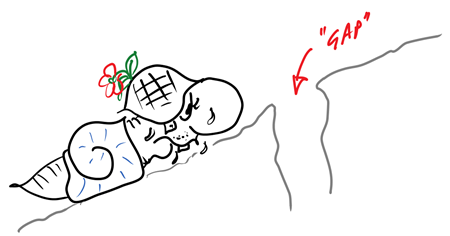How to raise a “gap” and “solution idea” which will make it onto the Rangers backlog
We have three major goals for the next few months.
- Continuous simplification based on retrospective feedback and learning.
- Focus (razor-sharp) on win:win and high-value “gap-filling” solutions, as outlined in our mission.
- Innovate from our well-established PDF-on-CodePlex delivery channel, to a more responsive and effective solution.
This post touches on the first two goals … watch the space for the third.
gap?
Gap is a missing feature in guidance or tooling within the context of a complete problem, without which a specific use case is blocked. Looking ahead we will ask the question “what is the gap” with a lot more vigour, and focus our limited (aka.ms/only15min) bandwidth on the right ideas.
what is a good idea?
Common questions:
- What makes an idea for a “gap-filling” solution a good one, which will find its way onto our backlog as a viable solution idea to be prioritised?
- What information do we need to vet an idea?
- How do you submit your idea to us?
- Define the three W’s … what, why and when … as a bare minimum, when describing your idea.
- What gap are we plugging and what do we intend to solve with the idea?
- Why is the idea important? Why should the ALM Community care about the idea?
- When is the solution needed by? When will the idea lose value?
- Include information on the subject matter experts (SME), whom we can contact for more information.
If you are submitting an idea within MSFT to the ALM Rangers you must also include the product owner (PO), who will own the idea and associated solution. - Submit your idea using the correct channel.
- If you are from the ALM Community, use Visual Studio UserVoice and remember to select the Rangers Project category.
- If you are from MSFT, use Visual Studio UserVoice if you want feedback from the ALM Community and/or contact the ALM Ranger PMs.
the more formal view
In a recent 2-slide overview deck we included the following diagram, which presents the same information as above, but in a more professional manner ![]()
what happens after we fill the gap?
To date we tried to support and maintain solutions long-term, even after the gap was filled by our or other solutions to ensure backwards compatibility. Going forward we will change the strategy to fill the gap and move on.
We …
- Will NOT invest in retiring (dusk) solution ideas.
- May NOT invest in existing (daylight) solution ideas.
- May invest in new (dawn) solution ideas.
… or gaps associated with such solutions, if and only if there is a gap, associated adoption blocker and tangible value-add to the user. While the tenacious “what’s the gap” question may create a lot of frustration and “Angst”, we hope that we will be able to focus on the high-value win:win solution ideas, based on solid and SMART (specific, measurable, achievable, realistic and timeous. See SMART_criteria) objectives.
Once the gap is filled, we will step back, hand-over ownership where possible, and focus on the next gap. This, however, is a discussion we will continue when we discuss our third goal (innovate delivery channel).
Thoughts? Feedback?


